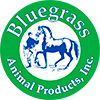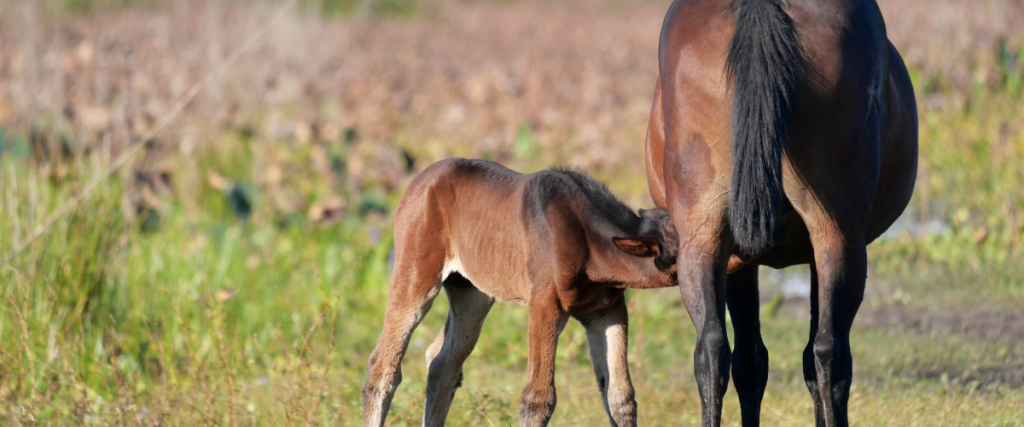Equine
Probiotics Before Foaling
Probiotics Before Foaling
Why Probiotics Before Foaling? Using probiotics in the mare before foaling is an emerging area of equine management. The idea is to optimize both the mare’s health and the microbial environment that the foal will encounter at birth and during early nursing thus ensuring transfer from mare to foal.
Main points to consider:
Microbial transfer to foal: Foals acquire their first gut bacteria from the mares birth canal, skin, environment, and nursing. A mare with a healthier and balanced microbiota may pass on more beneficial microbes. Not only can a more balanced microbial population be passed to the foal but a population that contains specific bacteria, such as L. reuteri, that increase immune response and defend against bacterial pathogens.
Colostrum quality: Some studies, although limited, suggest probiotics may increase IgG and immune factors in colostrum, which strengthens the foal’s immunity.
Gut health of the mare: Late pregnancy can stress the digestive system of the mare. Probiotics can help to reduce digestive upset during this stress, maintain appetite, and stabilize hindgut fermentation.
Pathogen control: Providing probiotics such as l. reuteri can help to suppress pathogens like E. coli, clostridium, salmonella, and Rota virus that can cause diarrhea in the foal.
Probiotics of consideration for the Mares:
Reuteri: Promotes a balanced microflora and inhibit colonization of harmful bacteria. These live l. reuteri organisms can be passed to the foal to colonize the foals gastrointestinal tract promoting a reduction in incidence of diarrhea and immune boost
Saccharomyces boulardii (yeast): Reduces pathogenic toxin activity and can lower incidence and severity of diarrhea. S. boulardii doesn’t colonize in the foals digestive tract however when it is supplemented it can bind to toxins commonly produced by pathogens affecting foals.
Timing of Supplementation:
Providing L. Reuteri supplementation during the last 4-6 weeks before foaling allows time for the mares gut flora to shift and stabilize before colostrum formation and increase and transfer from mare to foal in birth canal.
Peripartum period: Probiotics should continue to be given through foaling and early lactation to support milk production and mare recovery as well as continued transfer to foal.
Evidence and Research:
Dairy cow models (better studied than mares) show improved colostrum IgG and calf health with late-gestation probiotics. Equine data is limited but some field reports suggest reduced foal diarrhea and improved mare appetite/condition when probiotics are used pre-foaling. Experimental work on L. reuteri and S. boulardii shows benefit against enteric pathogens in foals, though most studies focus on direct foal supplementation rather than maternal pre-foaling use.
Practical considerations:
Choose equine-specific probiotic formulations, such as Equiotic, for a higher survival through the hindgut than generic products. Ensure products provide a guaranteed viable count (CFU) and strains known to colonize horses. Use daily supplementation or considerably increased weekly or biweekly dosages. Combine with good hygiene and management practices and colostrum monitoring.
In Summary:
Probiotic use in mares before foaling is biologically sound, especially for supporting foal gut health and immunity, though equine-specific research is still developing. The best candidates are L. reuteri, S. boulardii, and well-formulated yeast blends, started 4-6 weeks pre-foaling. Our Equiotic Foal & Mare product and the protocols for it is a great way to provide this good gut bacteria to the mare.
Sources:
Dougal K, de la Fuente G, Harris PA, Girdwood SE, Pinloche E, et al. (2013) Identification of a Core Bacterial Community within the Large Intestine of the Horse. PLOS ONE 8(10): e77660. https://doi.org/10.1371/journal.pone.0077660
Goodman-Davis, Rachel et al. “Gut Microbiota Manipulation in Foals-Naturopathic Diarrhea Management, or Unsubstantiated Folly?.” Pathogens (Basel, Switzerland) vol. 10,9 1137. 4 Sep. 2021, doi:10.3390/pathogens10091137 – https://pmc.ncbi.nlm.nih.gov/articles/PMC8467620/
Kiššová, Zuzana et al. “Immunomodulatory Effect of Lactobacillus reuteri (Limosilactobacillus reuteri) and Its Exopolysaccharides Investigated on Epithelial Cell Line IPEC-J2 Challenged with Salmonella Typhimurium.” Life (Basel, Switzerland) vol. 12,12 1955. 22 Nov. 2022, doi:10.3390/life12121955
Schoster, A et al. “Probiotic use in horses – what is the evidence for their clinical efficacy?.” Journal of veterinary internal medicine vol. 28,6 (2014): 1640-52. doi:10.1111/jvim.12451
Schoster, A et al. “Effect of a probiotic on prevention of diarrhea and Clostridium difficile and Clostridium perfringens shedding in foals.” Journal of veterinary internal medicine vol. 29,3 (2015): 925-31. doi:10.1111/jvim.12584

